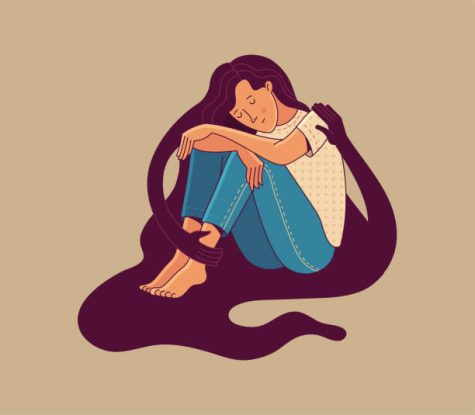Schuppel’s Scoop: the power of a good cry
Apr 15, 2022
Anyone who has had a conversation with me likely knows that I am a habitual crier. I can think of certain songs, books, pieces of artwork or movies that I will always well up consuming (or, in the case of “Harry Potter and the Deathly Hallows: Part II,” I will always sob). There is a point where crying can become too much or too frequent, but reaping the benefits of a good cry is vital.
There are years of psychology articles that talk about the benefits of a needed cry. One in particular from Medical News Today mentions eight reasons why it is healthy to cry. From the list, my favorites were the fact that it is a self-soothing technique, it releases toxins and it helps with sleep.

As work and school become priorities in our young adult lives, taking extra time for self care seems to be placed on the back burner — why waste time when I could be writing an essay or studying? Self care is an undervalued part of day to day life, and letting go of some stress by crying can calm nerves. Self-soothing is a practice that humans develop as infants, and crying is a healthy technique that carries over from this period of growth. There are many other self-soothing strategies (with some mentioned in this Positive Psychology post), but crying is one of our most natural inclinations to handle stress.
Crying is also beneficial for the release of hormones and toxins from the body. Harvard Health Publishing wrote on tears, saying how emotional tears (different from crying as a reflex) in particular release “oxytocin and endogenous opioids, also known as endorphins. These feel-good chemicals help ease both physical and emotional pain.” Not only this, but the website also lists crying as beneficial towards cardiovascular health, immune systems and hypertension.
Sleep can be assisted from crying, which has been researched more on babies than adults as of now. But, due to the calming nature that crying provides for many people, it can be seen as a relaxation aid, in turn helping your sleep. It takes energy to expel toxins from the body in any capacity, so sleeping after is another step of the relaxation process.
The stigmatization around anyone showing emotions by crying is rampant in western society. Even in the most vulnerable moments of life with grief or pain, many people will always be uncomfortable when someone cries. In indigenous cultures, the “death wail” is a huge aspect of mourning the loss of a loved one at a funeral; there is nothing wrong with vocalizing your pain in places like Africa, South America, Asia and Australia. It is not necessary to become completely comfortable with crying in front of strangers, but it is important to allow yourself to have a close few friends or family members where you can let down your guard and cry if needed. Sharing those moments with a loved one solidifies the strength of a bond and can help erase that stigma.
There is a limit to all stress relief techniques, and crying is no exception. If you feel as if you have a hard time controlling crying, feelings of stress, depression or anxiety, the amount of resources available grows every day. John Carroll’s Counseling Center provides numerous resources for anyone struggling on campus, and the SAMHSA Helpline is available at all hours.

For me, there is something wonderfully cathartic about immersing myself so deeply into media that I will have the emotional release of crying. Most recently, I saw “Everything Everywhere All At Once,” and I found myself crying solely because of a realization that the human experience is a complex one — I wasn’t necessarily sad or happy, I was just overwhelmed with thought. I love the moments where a movie I love wins an Oscar and I cry tears of joy, and I love the moments where I feel such strong connections with characters in a book that I can’t help but cry when they struggle.
Crying has always been a great source of relief for me, and that is something for which I am immensely grateful. Our ability to physiologically calm our stress and help our moods is fascinating. The applicability of crying to so many situations will never fail to amaze me. Let the tears flow next time you watch “The Notebook” or you see empowering news on Twitter; you will always feel better after.












